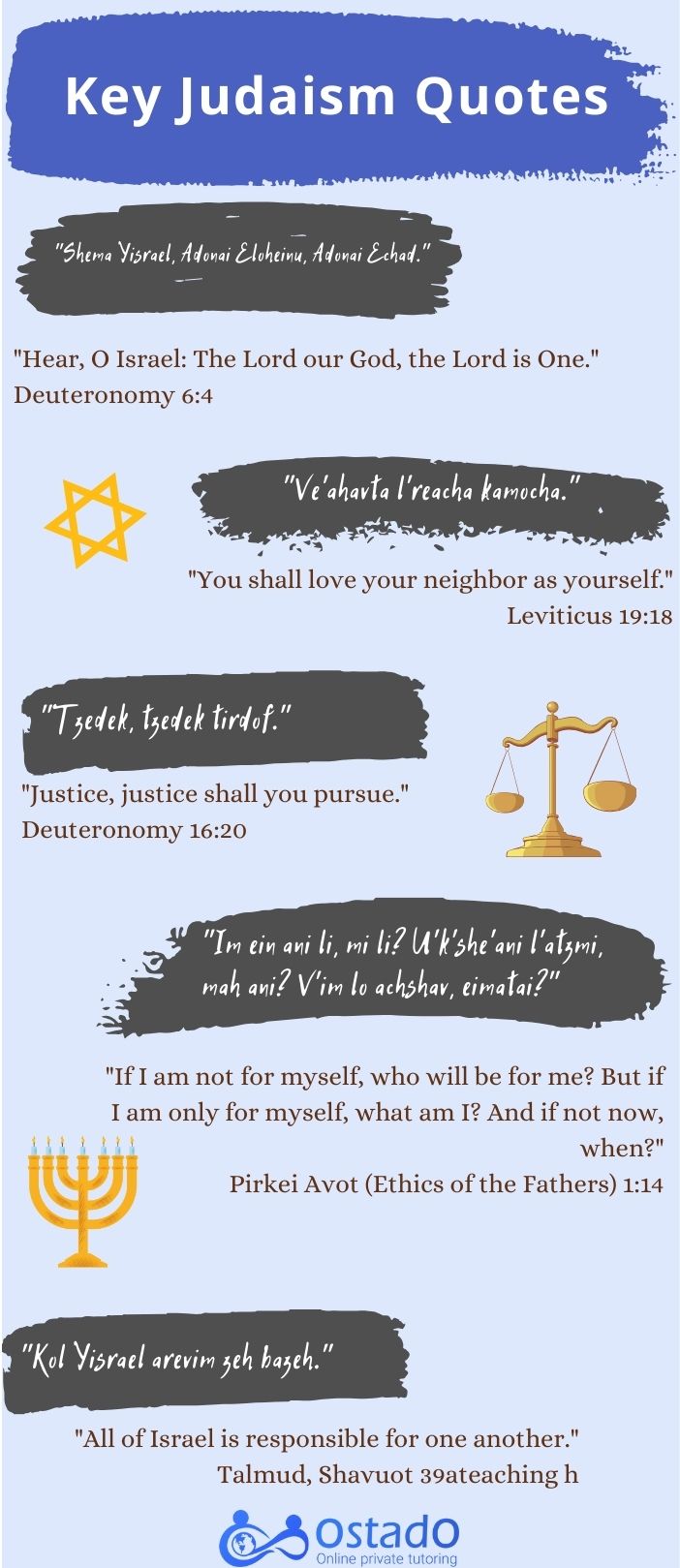Religious studies is one of the optional GCSE subjects. But the religious concepts can bore you to death if you’re not a fan of conservatism, conformity, and conventions. So, I think it’s worth less than 15 minutes of your time to see if Religious Studies is the right option for you and, if so, how you can revise GCSE Judaism. By the way, we’ll be focusing on Judaism as a monotheistic religion in this article. If you’re looking for the generals, click on How to revise for RS GCSE.
Is RS a Good Choice for GCSE?
Religious studies is an excellent GCSE for students who aim to pursue higher education in sciences such as Philosophy, Sociology, Anthropology, Political Science, and History. Or you might simply like the subject if you’re brought up in a religious family or community.
So, at the end of the day, it’s a matter of your preference whether to take RS GCSE. However, we strongly recommend maintaining congruence in your GCSE choices. You should also learn about the entry requirements of the university or college you want to apply for.
In short, while it is a matter of personal interest, you should evaluate how doing RE GCSE can benefit you in the future.
How to Revise for Judaism GCSE?
Judaism GCSE revision helps you reinforce key concepts and ideas in Judaism. And since preparing for GCSE religious studies mostly involves memorising the concepts, it’s really helpful to have a revision schedule.
1. Creating a Revision Schedule
First, you should have a checklist of Judaism GCSE revision topics. Then, you should check how much time you can spend on this subject. You should prioritise more complex subjects like GCSE maths and allocate more time to them.
In order to have enough time to revise for all GCSEs, you should start revising six months before the exam season. 3 to 4 hours a week should be enough to cover all GCSE Judaism, given that you start early.
You can download free revision timetable templates to schedule your Judaism revision and keep track of your progress.
2. Employ Proper Revision Techniques
Since you need to memorise a large amount of information for GCSE religious studies, you should summarise the topics and create outlines to help you remember the details. You can also use Judaism flashcards or create your own flashcards to reinforce the Judaism topics.
3. Practise Past Papers for Judaism GCSE Revision
Practising past papers familiarises you with the exam question styles, mark schemes and the exam format. You should practise past papers under a time limit and try to simulate the exam conditions to develop time management and other test-taking strategy skills.
4. Use Different Resources
Using different resources helps you gain intensive knowledge about Judaism. Luckily, there are no deficiencies in resources when it comes to religion. But you’d better concentrate on formal resources designed for educational purposes.
- GCSE Judaism Revision Notes (PDF)
- GCSE Religious Studies: Judaism Beliefs and Teachings (YouTube)
- Judaism RE Revision GCSE (YouTube)
- Judaism Revision Made Easy (podcast)
5. Benefit From Collaborative Learning
The thing about religion is that you don’t need a degree to promote it or a licence to teach it so long as you’re among its followers. What I mean is that although Judaism revision books are the most reliable resources, you can also rely on an interview with a Rabbi or a very orthodox Jew to learn about Judaism.
Additionally, you can join a study group of other students with similar interests. The interaction involved in this revision technique makes Judaism revision less dull. You can even book some sessions with RE GCSE tutors to wrap up the subject if you don’t have much time.
A Quick Overview of Judaism
Judaism is one of the oldest monotheistic religions (worshipping only one God), dating back three millennia, and it still has many followers. According to demographic statistics, there are around 15.2 million Jews worldwide, but the population is dense in Israel and the United States of America.
Judaism started with Abraham’s covenant with God, from which the idea of the Promised Land, or homeland for Jewish people, evolved. The covenant was passed to Abraham’s son Issac, his son Jacob, and his twelve sons, who founded the 12 Jewish tribes.
Moses was also a pivotal figure in Judaism. He led the Israelites out of slavery in Egypt and received the Torah on Mount Sinai. Torah is the first of five books of the Hebrew Bible and contains the laws and teachings of Judaism.
Jewish Beliefs and Teachings
The pillar of Judaism is the concept of one God. God is unique (monotheism), omnipotent (all-powerful), omnipresent (everywhere), omniscient (all-knowing), and omnibenevolent (all-loving), and he is the just lawgiver.
Jewish people follow the teachings of the Torah, which is considered the foundational text of Judaism. They believe that the more they adhere to these teachings, the closer they become to God. That is, God judges the followers based on their observance of Jewish teachings.
Life After Death
Orthodox Jews also believe in the afterlife (Olam Ha Ba) as a time of reward and punishment for their deeds. However, this is not a core belief in Reform and Constructionist Judaism. Generally, Judaism emphasises living a good life rather than what will happen after death. Additionally, Orthodox Jews believe in the resurrection of the righteous in the Messianic Age to live in a perfect world under God’s rule.
Free will is also one of the core teachings in Judaism. Based on the teachings, humans are free creatures, and they are responsible for their actions.

Jewish Identity and Community
The Jews believe they’re the chosen people to spread God’s message to mankind.
Jewish people value community. In fact, observing the Sabbath is one of the Ten Commandments, which requires Jews to stop all work (e.g., cooking, driving) from sunset on Friday to sunset on Saturday. It’s a time of family and community, and the services in the synagogue are well-attended in this period.
Sabbath day symbolises God’s rest after creating the universe in six days. Many Jews believe that the world existed because God created heaven and earth.
However, the strictness of observing the laws of Judaism is not the same in different branches of Judaism. Jewish people can identify as any of the following branches and follow the rules based on their community principles.
- Orthodox Jews: The followers are the most traditional Jewish people who are strictly observant of the Jewish law (Halacha).
- Reform Jews: They started a new branch of Judaism in the early 19th century in Germany. They might observe traditional practices, but they emphasise personal choices.
- Conservative Jews: Conservative Judaism also dates back to the 19th century. It was established as a reaction to Orthodoxy’s strictness and Reform Judaism’s liberty. It aimed to strike a balance between the two.
- Reconstructionist Jews: Reconstructionist Judaism emerged in the US in the 20th century. It views Judaism as an evolving religious civilisation rather than a religion.
Jewish Practices and Rituals
Jewish people gather at least once a week in the synagogue for communal prayers (Sabbath). The synagogue is also the centre for performing other Jewish rituals and celebrating festivals like Hanukkah.
Kashrut is another practice of the Jews regarding dietary laws. It’s about what food is permissible and how it should be prepared.
There are also other rituals for the Jews’ life cycle, including:
- Brit Milah: Circumcising the boys on the eighth day after birth.
- Bar Mitzvah: The ceremony for Jewish people when they turn 13 and must start to observe Jewish commandments.
- Kiddushin: Getting married and starting a family.
- Shiva: A 7-day mourning period during which the bereaved family receives visitors and refrains from doing certain activities.
FAQs - Judaism GCSE Revision
- How hard is religious studies GCSE?Religious studies is not a difficult GCSE subject if you spend enough time learning key concepts and developing argumentation skills.
- What is the pass rate for GCSE religious studies?The pass rate for GCSE religious studies is about 72%, which is high for a subject highly regarded by university admission officers.
- Can I study Judaism for RS if I'm not Jewish?Judaism in GCSE RS is approached from an academic perspective. Studying Judaism as a part of GCSE RS is open to all students, regardless of their religion. So, you can study Judaism for GCSEs even if you don't believe in Judaism.

